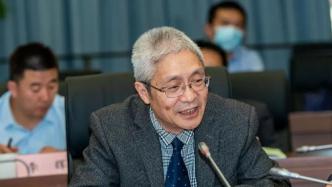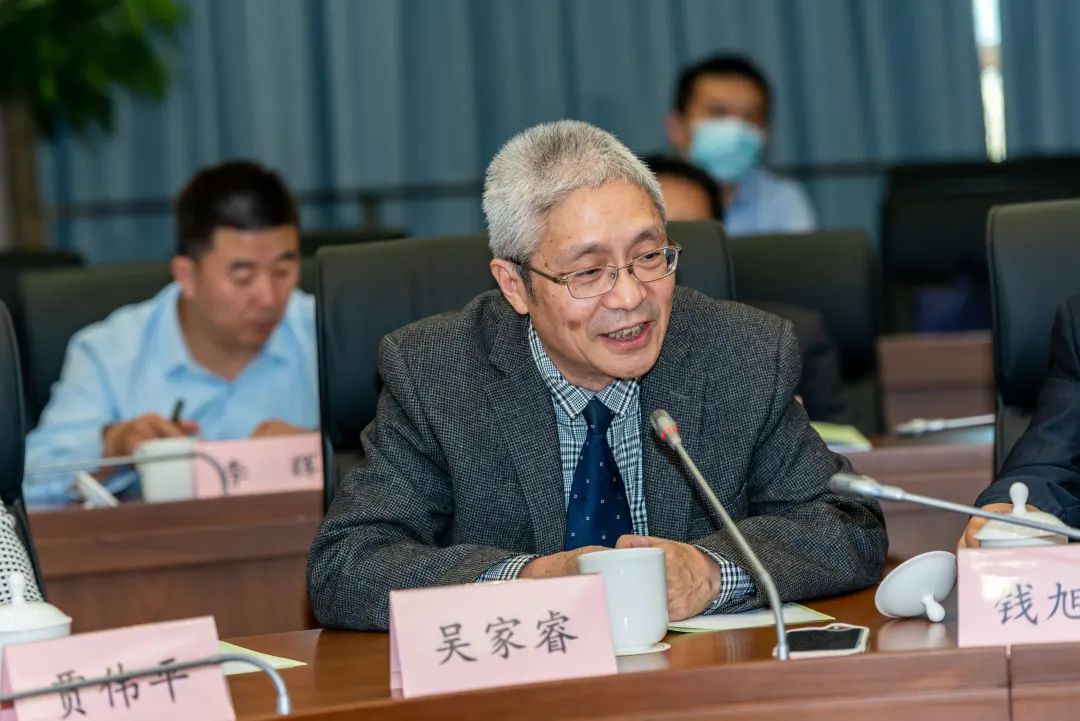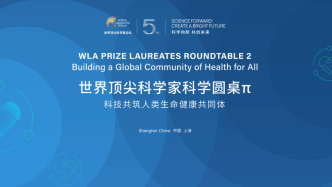
Recently, the China Institute of Popular Science, the Shanghai Science and Technology Association, and the China Popular Science Writers Association jointly held a seminar on Wu Jiarui's popular science works in Shanghai. More than 40 experts attended the meeting and delivered speeches.
Wang Ting, director of the China Science Popularization Research Institute and executive vice chairman of the China Science Writers Association, sent a video speech for the seminar, congratulating the successful holding of the "Strengthening Work Comments and Prospering Original Popular Science - Wu Jiarui's Science Popularization Works Seminar".

Wu Jiarui, Executive Dean, School of Life and Health Sciences, Hangzhou Institutes for Advanced Study, UCAS
Wu Jiarui received his Ph.D. from ETH Zurich in Switzerland in 1994. He is currently a researcher at the Center for Excellence in Molecular Cell Innovation, Chinese Academy of Sciences, Executive Dean of the School of Life and Health Sciences, Hangzhou Institutes for Advanced Study, Chinese Academy of Sciences, and Director of the Key Laboratory of Systems Biology, Chinese Academy of Sciences. The direction is to study the occurrence and development of chronic diseases such as diabetes and tumors by means of systems biology. In addition to publishing popular science books "Thinking in the Post-Genome Era" and "What is Biology", he also publishes popular science articles through magazine columns and his personal WeChat account "My Family Wisdom".
Qian Xuhong, chairman of Shanghai Popular Science Writers Association, academician of the Chinese Academy of Engineering, and president of East China Normal University, said in his speech that Mr. Wu Jiarui's popular science is very distinctive, and is described by an immature term - "predictive popular science": these Years when he has been at a certain stage or crossroads in the development of scientific research and discipline, judging what will happen next? What will its future show? When scientific issues are intertwined with social issues and ethical issues, and arouse public concern, when there are different opinions and it is difficult to distinguish the truth from the false, he explains it to everyone through magazines, columns, and WeChat public accounts. This kind of predictable and guiding popular science, the former provides guidance on the direction and strategy of the discipline, and the latter allows people to feel the author's speculative and rational light more.
Jia Weiping, academician of the Chinese Academy of Engineering and chief physician of the Sixth People's Hospital Affiliated to Shanghai Jiaotong University School of Medicine, said that it is very difficult to express the scientific meaning very accurately in a relatively short space, and let others understand it. The content in What is Biology is graphic, engaging, and memorable. "When I read this book, on the one hand, it is to accept knowledge, and on the other hand, I feel that it is inspiring our innovative thinking."
Wang Enduo, an academician of the Chinese Academy of Sciences and a researcher at the Center for Excellence in Molecular and Cell Science (Institute of Biochemistry and Cell Biology) of the Chinese Academy of Sciences, said that Wu Jiarui's book explained the profound things in simple terms, allowing more people to know the author's talent and think more about biology Learning questions will also make everyone ponder how to become a "human" different from other creatures.
Bian Yulin, honorary chairman of Shanghai Science Writers Association, astronomer and well-known popular science writer, said in his speech that successful popular science writers often attach great importance to integrating the scientific knowledge that human beings have today into the historical process of scientific understanding and practice, and using philosophy In terms of language, that is to truly achieve the unity of history and logic. In the process of popularizing scientific knowledge, reappearing the true face of human understanding, utilization and transformation of nature will help readers understand the development of scientific thought and the true meaning of scientific spirit. "I read Mr. Wu Jiarui's works, and let me sum it up in one sentence. I said that laymen can also see the doorway."
"The greatest challenge facing biology is the conflict between deterministic thinking from researchers and the contingent features of life." This is the closing sentence of the main text of "What is Biology?"
Wu Jiarui said in his speech that today, when knowledge has become too easy to obtain, we should discuss originality, at least not stop at the dissemination of knowledge, but to dig out the spirit, connotation and process behind knowledge. We write and disseminate the spirit of science and changes in science we perceive, "I think it should be considered in the content of popular science." Compared with the past, dissemination may become more important, which is in the scientific An understanding of the purpose of popularization. Schrödinger, an Austrian theoretical physicist, wrote a book called "What is Life". The basic framework of the book is a collection of public presentations he was invited to make in Dublin, Ireland. The audience at that time ranged from kings to nobles to ordinary people, and it was said that one vote was hard to come by. This book was very important to the development of life sciences in the 20th century. Many people were influenced by this book. Physicists and chemists jumped into life sciences and promoted the development of molecular biology. "When we talk about popular science, it is often seen as a one-way transmission; but the transmission is different, and it can be passed back, and knowledge flows in the whole society."


